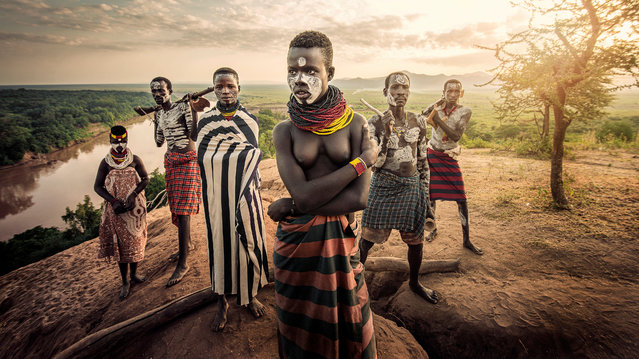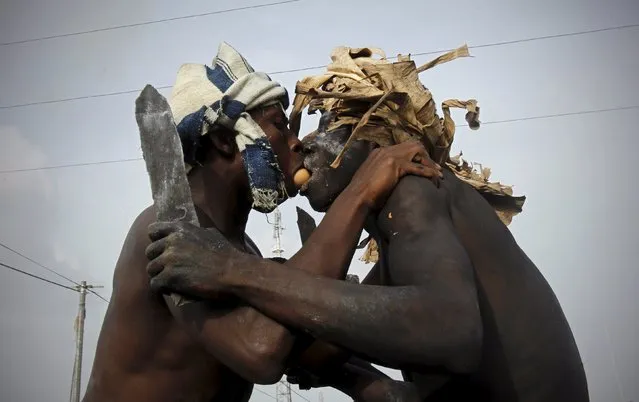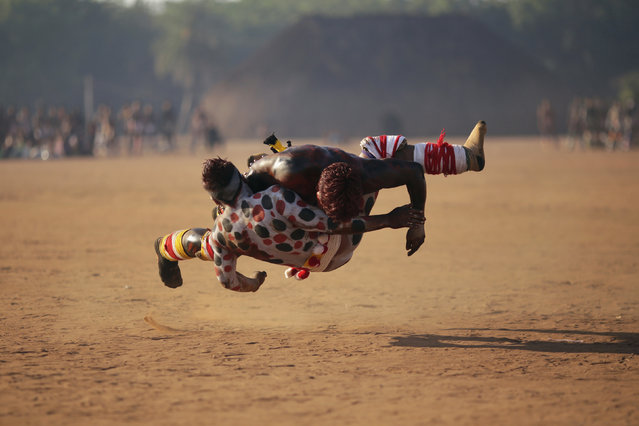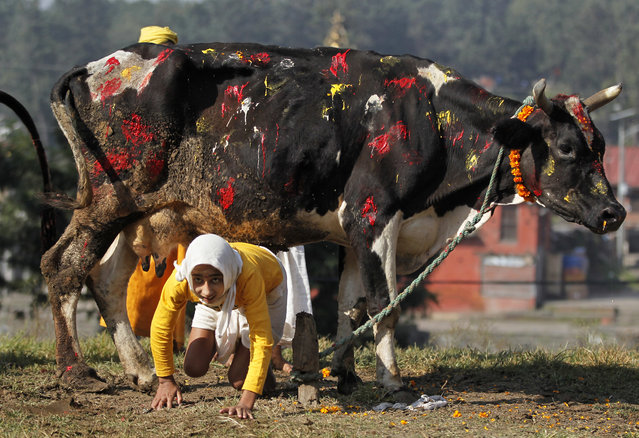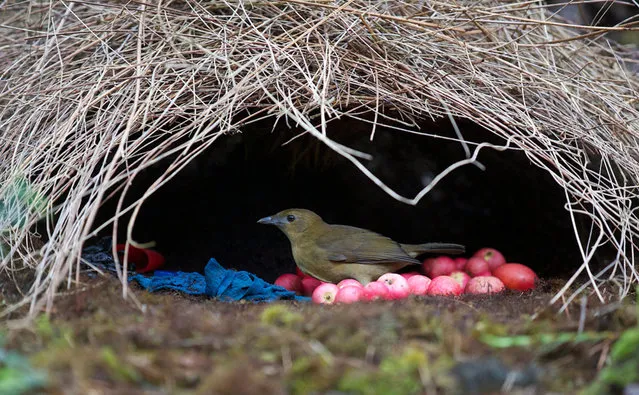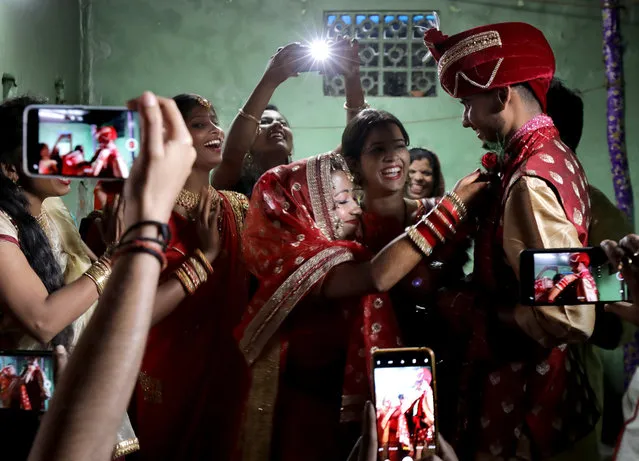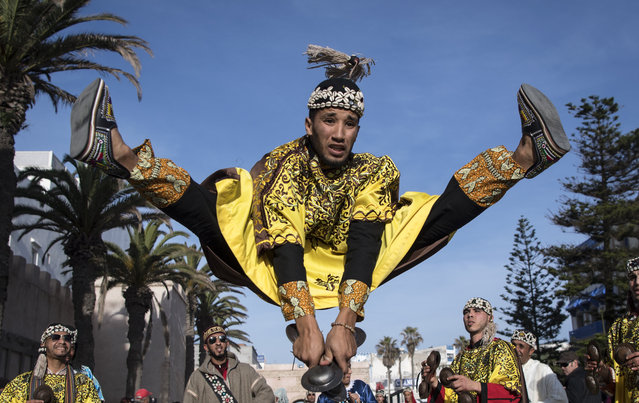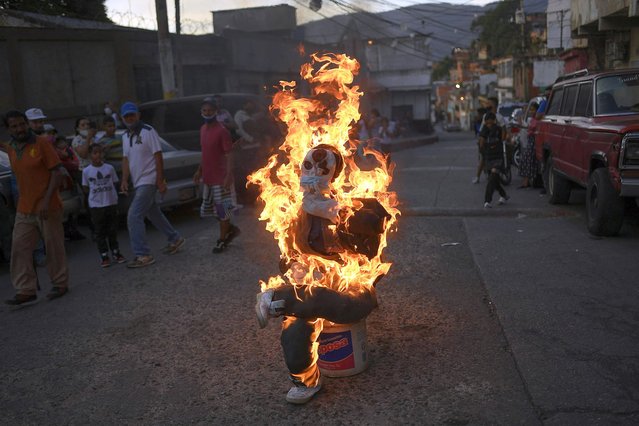
An effigy representing Judas Iscariot burns as some people wearing masks watch during Holy Week in the Catia neighborhood of Caracas, Venezuela, Sunday, April 4, 2021. The Burning of Judas is an Easter-time ritual in many communities, where an effigy of Judas Iscariot is hanged on Good Friday, then burned on Easter Sunday. (Photo by Matias Delacroix/AP Photo)
22 Apr 2021 09:53:00,post received
0 comments

